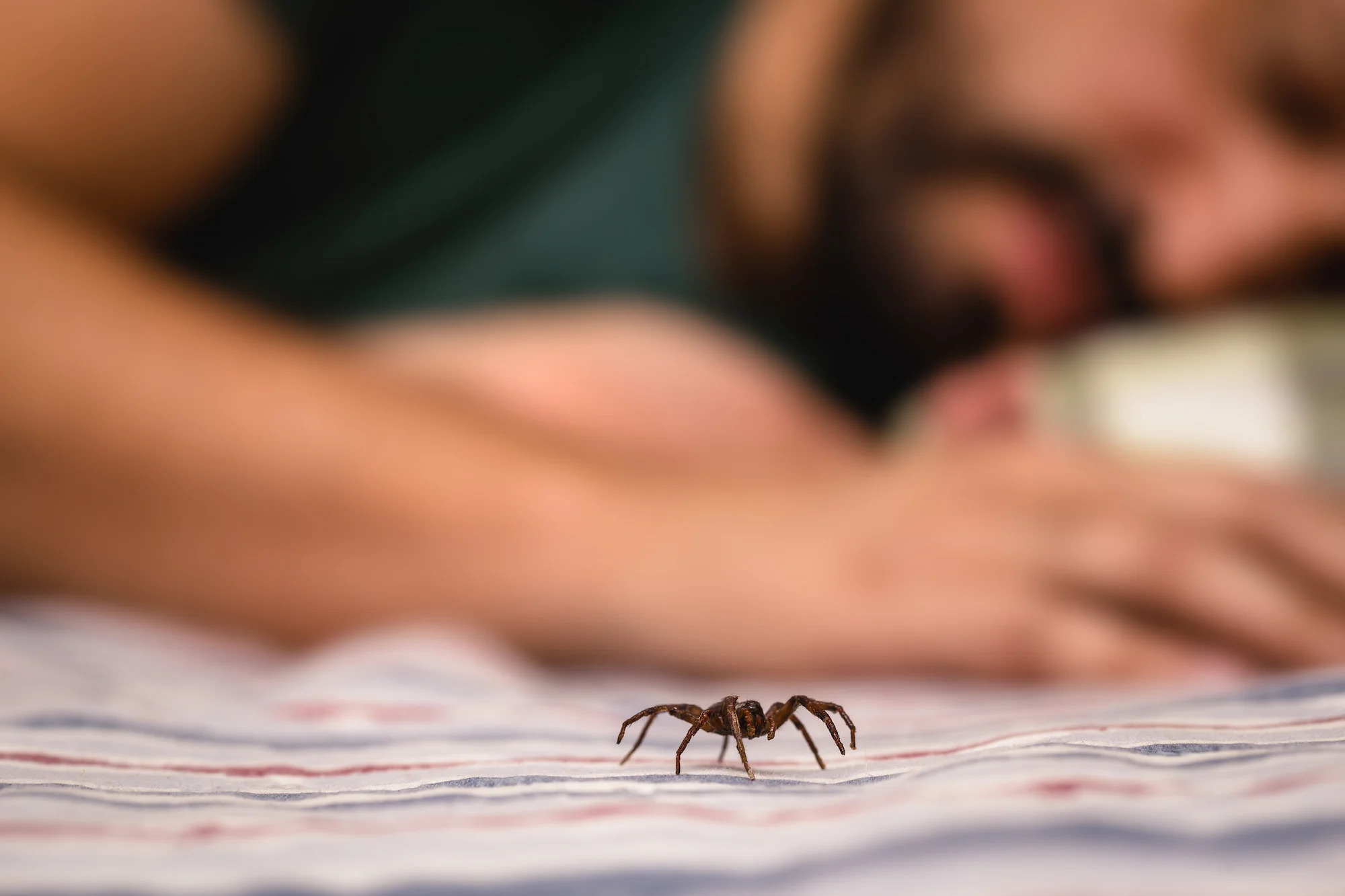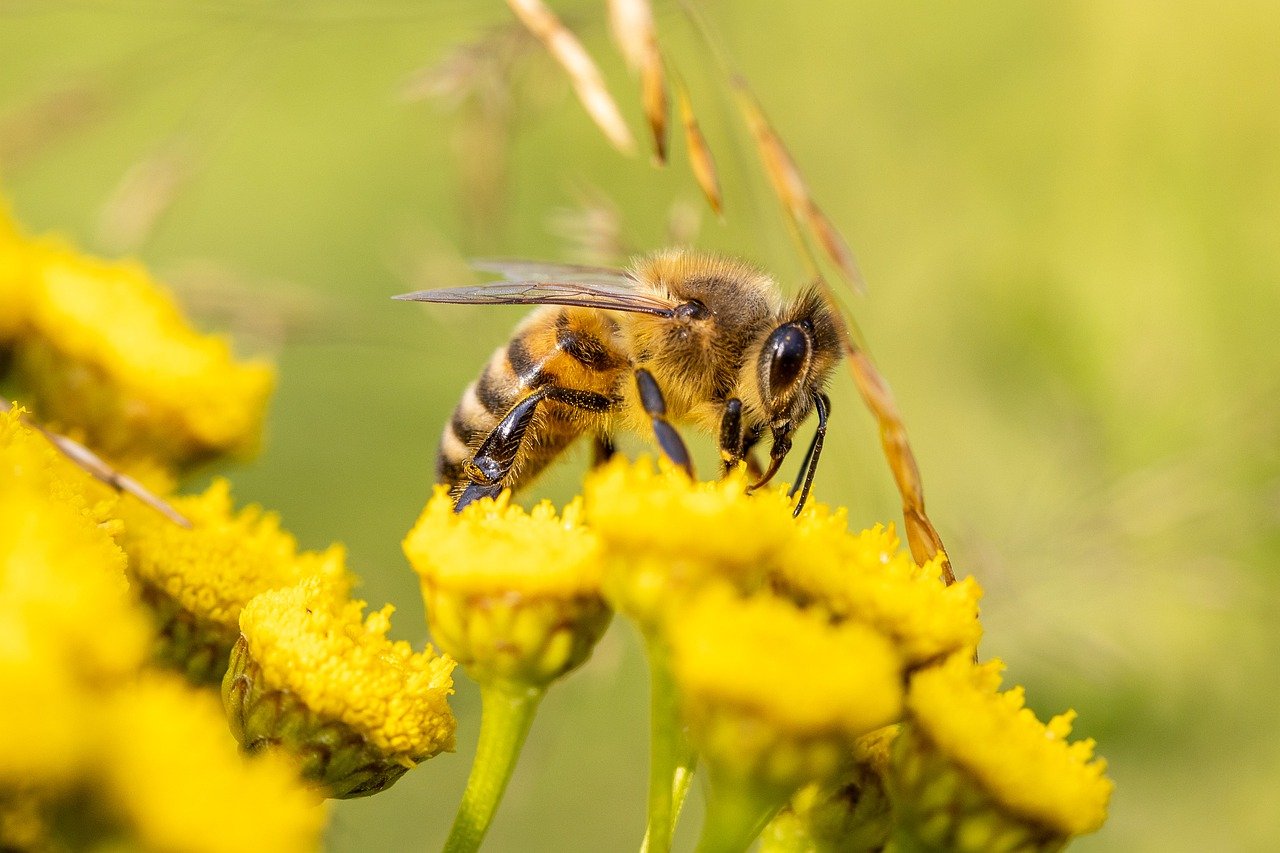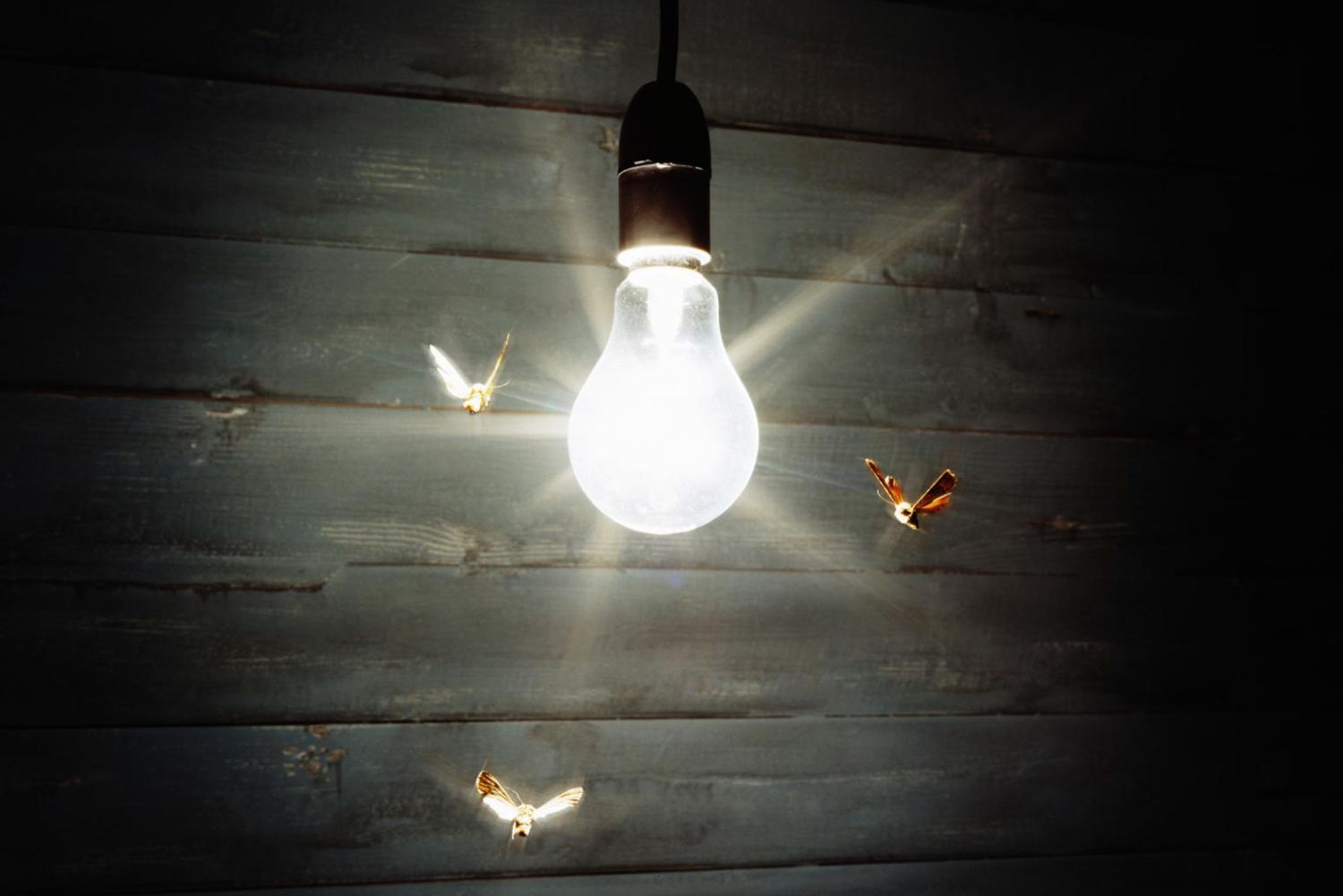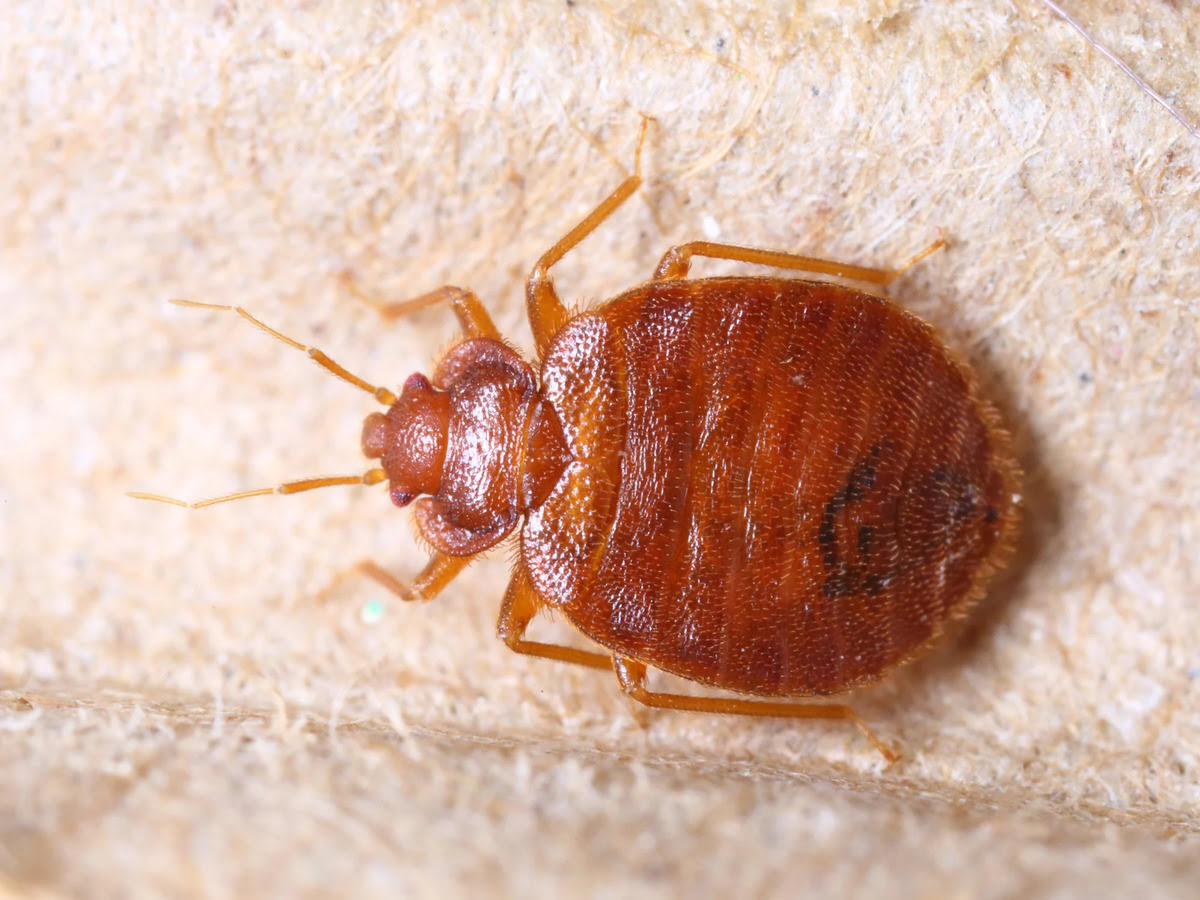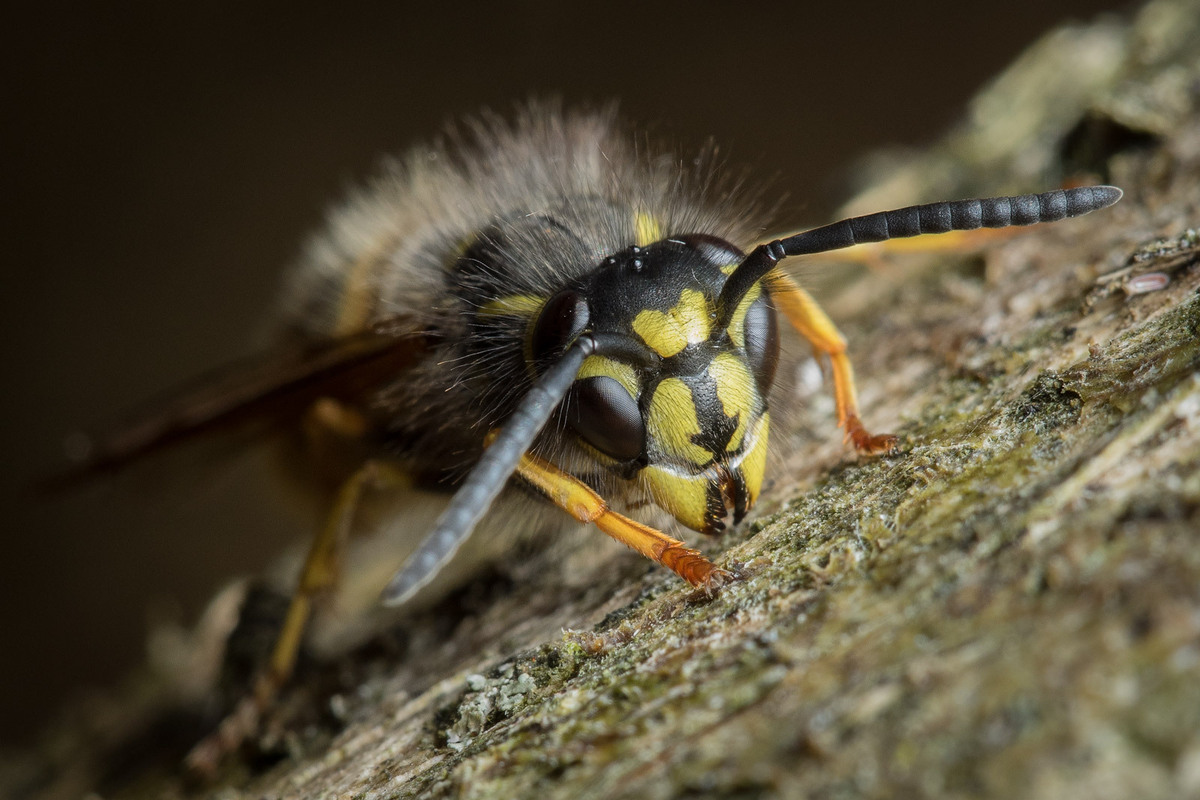Home>Gardening News and Trends>Latest News>Why Are We Scared Of Insects
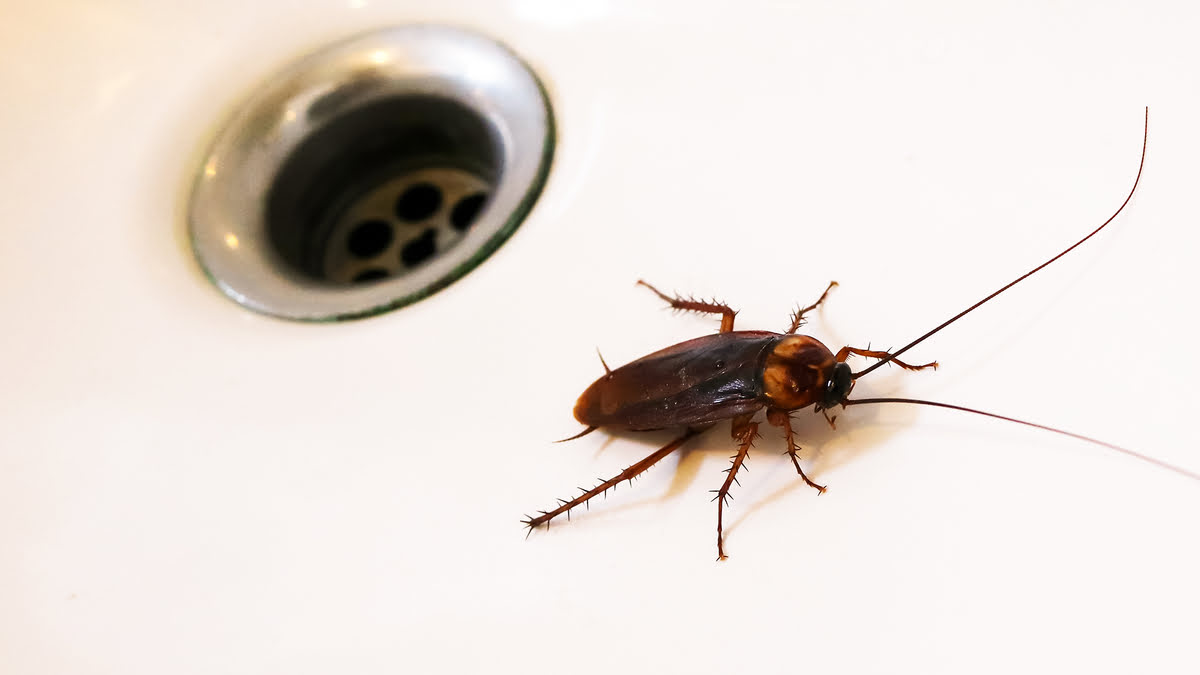

Latest News
Why Are We Scared Of Insects
Modified: January 22, 2024
Discover the latest news on why we are scared of insects. Explore the fascinating reasons behind our fear and uncover tips to overcome it.
(Many of the links in this article redirect to a specific reviewed product. Your purchase of these products through affiliate links helps to generate commission for Chicagolandgardening.com, at no extra cost. Learn more)
Table of Contents
Introduction
Fear is a universal human emotion that can manifest itself in many forms, one of which is an aversion to insects. While some people may have a mild dislike for these small creatures, others experience an intense and irrational fear known as entomophobia. This fear of insects can range from a general unease to a full-blown phobia that can significantly impact a person’s daily life.
So, why are we scared of insects? The roots of this fear can be traced back to a combination of psychological and evolutionary factors, as well as cultural influences. Understanding the underlying reasons behind this fear can shed light on the mechanisms that drive our aversion to these tiny creatures.
Psychologically, fear is a primal response that has evolved to protect us from potential threats. Insects, with their small size, erratic movements, and sometimes venomous bites or stings, can trigger a fear response in many individuals. This fear is ingrained in the human psyche as a survival instinct, as it is crucial to identify potential dangers and take appropriate action.
Furthermore, evolutionary explanations suggest that our ancestors developed a fear of insects as a form of self-preservation. Insects can transmit diseases, and certain species are venomous or can cause severe allergic reactions. For our early ancestors, the fear of insects was a survival mechanism that helped them avoid potential harm.
In addition to these psychological and evolutionary factors, cultural influences also play a significant role in shaping our fear of insects. Throughout history, various cultures have associated insects with negative connotations such as filth, disease, and even supernatural elements. These cultural beliefs have seeped into our collective consciousness, reinforcing the aversion to insects that many people experience today.
Another key aspect that contributes to the fear of insects is the association with disgust and contamination. Insects are often associated with uncleanliness and can trigger a sense of disgust due to their appearance or habits. This visceral reaction can fuel our fear and avoidance of these creatures.
Additionally, childhood experiences can also contribute to the development of insect phobias later in life. Traumatic encounters with insects during childhood, such as being stung or bitten, can leave a lasting impression and create a fear response that persists into adulthood.
Moreover, the media and entertainment industry play a significant role in shaping our perception of insects. Movies, books, and TV shows often portray insects as menacing, dangerous creatures, further reinforcing our fears and insecurities.
It is important to note that while fear of insects is common, it can escalate into a phobia or anxiety disorder that requires professional intervention. Insect phobias can cause severe distress and significantly impact a person’s quality of life. Such cases should be addressed and treated by qualified mental health professionals.
In the following sections, we will explore the various factors that contribute to the fear of insects in more detail, including phobias and anxiety disorders. Additionally, we will discuss strategies for overcoming this fear and reclaiming a sense of control in the presence of insects.
The Psychology of Fear
Fear is a powerful and complex emotion that serves as a natural defense mechanism. When confronted with a potential threat, our brains trigger a series of physiological and psychological responses that prepare us to face or flee from the danger. Understanding the psychology of fear can provide insights into why we are scared of insects.
At a psychological level, the fear of insects can be attributed to several factors. One primary reason is the uncertainty and unpredictability associated with insect behavior. Insects exhibit rapid movements, erratic flight patterns, and often appear suddenly, triggering a startle response in humans. Our brains are wired to detect and react to sudden changes in our environment as a means of survival.
Another psychological factor that contributes to our fear of insects is the concept of “preparedness.” According to the preparedness theory proposed by psychologist Martin Seligman, humans and other animals are predisposed to develop fears of specific stimuli, such as insects, that have historically posed a threat to our ancestors. This innate readiness to develop fears of certain stimuli is a result of evolutionary conditioning and can explain why the fear of insects is so prevalent.
Furthermore, our aversion to insects can also be influenced by cultural and societal norms. In some cultures, insects may be associated with filth, disease, or bad luck, promoting fear and disgust towards these creatures. These cultural beliefs and learned associations can shape our perspectives and contribute to the fear of insects.
Disgust, another powerful emotion, plays a significant role in the fear response towards insects. Research suggests that disgust evolved as a mechanism to protect us from potential sources of contamination or disease. Insects, with their scurrying movements, strange appearance, and occasional association with decomposing matter, can trigger feelings of disgust, which in turn contribute to our fear and avoidance.
It is essential to recognize that fear of insects exists on a spectrum, with some individuals experiencing a mild discomfort and others developing severe phobias. Phobias are intense and irrational fears that can significantly impact a person’s daily life. In the case of insect phobias, individuals may go to great lengths to avoid any contact with insects, leading to impaired social interactions or even isolation.
The fear of insects is not inherently problematic unless it interferes with daily functioning or causes significant distress. For individuals struggling with insect phobias or excessive fear, it may be helpful to seek support from mental health professionals who specialize in anxiety disorders.
In the next sections, we will explore further the evolutionary explanations, cultural influences, and other factors that contribute to the fear of insects. Additionally, we will discuss strategies for overcoming this fear and regaining a sense of control in the presence of insects.
Evolutionary Explanations
To delve deeper into the fear of insects, it is important to consider the evolutionary explanations behind this deeply ingrained aversion. Throughout human history, our ancestors faced numerous threats from various insects, which led to the development of an inherent fear response in our species.
Evolutionary psychologists suggest that our ancestors’ fear of insects can be attributed to the potential harm these creatures posed. Many insects are venomous, capable of delivering painful bites or stings, or transmitting diseases. Our ancestors who developed a fear of insects were more likely to survive and pass on their genes to future generations by avoiding these potential dangers.
This evolutionary conditioning has resulted in an innate predisposition for humans to be cautious or fearful of insects. Even though the actual threat posed by many insects in modern times may be minimal, our brains are still wired to perceive them as potential dangers due to our evolutionary history.
One evolutionary theory that explains the fear of insects is the “Biological Preparedness” theory. According to this theory, humans have a built-in predisposition to develop fears of certain stimuli, including insects, that were historically associated with survival threats. This preparedness to develop fears has been shaped by the evolutionary history of our ancestors, in which encounters with insects could lead to physical harm or illness.
Furthermore, the fear of insects can also be linked to our instinctual response to the uncanny and unfamiliar. Insects often possess unique physical characteristics, such as multiple legs or unusual body shapes, which can trigger a sense of unease in humans. Our brains are wired to be wary of the unfamiliar, as it could potentially represent a threat.
However, it is important to note that not all individuals experience the same level of fear towards insects. While some people may have a heightened fear response due to evolutionary conditioning, others may have a more neutral or even positive view of insects. Individual differences, personal experiences, and cultural factors can also influence our perception and response to these creatures.
Understanding the evolutionary explanations behind the fear of insects can help to normalize and contextualize this common fear. It highlights the fact that our fear is not irrational, but rather a result of our evolutionary heritage. By recognizing and acknowledging this fear, individuals can begin to develop strategies to manage and overcome it.
In the subsequent sections, we will explore the impact of cultural influences, the role of disgust and contamination, and other factors that contribute to the fear of insects. Additionally, we will discuss effective strategies for facing and overcoming this fear, ultimately reclaiming a sense of control in the presence of insects.
Cultural Influences
Cultural beliefs and societal norms play a significant role in shaping our perception of insects and contributing to the fear many people experience towards them. Throughout history, various cultures have associated insects with negative connotations, further reinforcing our aversion and fear.
In some societies, insects are often associated with filth, disease, and decay. This association stems from the fact that certain species of insects are commonly found in unsanitary environments or may be vectors for diseases. These cultural beliefs can have a profound impact on how individuals perceive and react to insects, heightening their fear and disgust.
Religious and spiritual beliefs also influence our attitudes towards insects. In some cultures, insects hold symbolic meanings that may contribute to their negative portrayal. For example, beetles may be perceived as harbingers of bad luck or signs of impending misfortune. These cultural interpretations can reinforce the fear of insects and shape our emotional response towards them.
Add to that, media and entertainment also play a significant role in perpetuating our fear of insects. Books, movies, and TV shows often portray insects as menacing creatures, instilling a sense of fear and danger in the viewer’s mind. These portrayals can further reinforce our preexisting fear and contribute to the development of insect phobias.
Moreover, cultural differences can also influence how individuals perceive and react to insects. In some societies, insects are considered a regular part of the diet and are viewed positively as a food source. In contrast, other cultures may find the idea of consuming insects repulsive, reinforcing the concept of insects as unclean or disgusting.
It is important to recognize that cultural beliefs and attitudes towards insects are not uniform across all societies. Different cultures may have varying levels of fear or acceptance of insects based on their unique histories, experiences, and religious or spiritual beliefs.
While cultural influences can contribute to our fear of insects, it is essential to approach the topic with an open mind and recognize that not all insects are harmful or deserving of fear. Educating ourselves about the valuable roles that insects play in ecosystems and their importance for biodiversity can help to challenge and reshape these cultural biases.
In the following sections, we will explore the influence of disgust and contamination, childhood experiences, and the media on our fear of insects. Additionally, we will discuss strategies for overcoming this fear and regaining a sense of control in the presence of these fascinating creatures.
Disgust and Contamination
A significant factor contributing to our fear of insects is the association with disgust and contamination. Insects, with their small size, peculiar appearance, and sometimes unsanitary habitats, can trigger a sense of revulsion and repulsion in many individuals.
The emotion of disgust evolved as a way to protect us from potential sources of contamination or disease. It serves as a defense mechanism to avoid substances or situations that may pose a threat to our well-being. In the case of insects, the feeling of disgust can be elicited by their scurrying movements, the strange sounds they may make, or their perceived unsanitary nature.
Research has shown that there is a close link between the emotions of fear and disgust. The presence of disgust can intensify the fear response, making the fear of insects even more potent. This association between disgust and fear can lead to a heightened aversion and avoidance of insects.
Furthermore, cultural beliefs and social conditioning also contribute to our association of insects with filth and contamination. In some societies, insects are seen as carriers of disease and associated with unsanitary conditions. These cultural beliefs can amplify our disgust response towards insects and further reinforce our fear.
It is important to note that not all insects are harmful or carry diseases. In fact, many insects play important roles in ecosystems, such as pollination and decomposition. However, our innate disgust response to certain aspects of insect behavior, appearance, or habitats may overshadow these beneficial qualities.
It is essential to challenge these automatic disgust responses and reevaluate our perceptions of insects. Educating ourselves about the ecological roles insects play and understanding their importance in maintaining the balance of ecosystems can help to counteract the associations of disgust and contamination.
Moreover, cognitive-behavioral techniques, such as exposure therapy, can be useful in overcoming the fear of insects related to disgust and contamination. By gradually exposing oneself to insects in a controlled environment, individuals can desensitize themselves to the feeling of disgust and gradually reduce their fear response.
Additionally, reframing our thoughts and focusing on the fascinating aspects of insects, such as their intricate behaviors or the marvels of their structural adaptations, can help to shift our perspective from disgust to curiosity and appreciation.
In the following sections, we will explore the impact of childhood experiences, media and entertainment, phobias and anxiety disorders, and strategies for overcoming the fear of insects. By understanding these various factors, individuals can begin to address their fears and take steps towards reclaiming a sense of control in the presence of insects.
Childhood Experiences
Childhood experiences play a significant role in the development of fears, including the fear of insects. Traumatic encounters or negative experiences with insects during early childhood can leave a lasting impact and contribute to the fear and avoidance of these creatures later in life.
Children, particularly at a young age, have a heightened vulnerability and are more susceptible to developing fears and phobias. If a child has a traumatic experience with an insect, such as being stung or bitten, it can create a strong association between the negative event and insects in general. This association can lead to a fear response that persists into adulthood.
Moreover, children often learn from observing the reactions and attitudes of adults towards insects. If parents or caregivers display fear or disgust towards insects, the child may internalize these reactions and develop similar responses towards insects. On the other hand, if adults convey a sense of curiosity and respect for insects, the child may develop a more positive outlook.
It is crucial for parents and caregivers to be mindful of their own reactions and attitudes towards insects when around children. Encouraging open-mindedness, curiosity, and respect for insects can help to prevent the development of a fear response in children.
Additionally, exposure to media and entertainment during childhood can also contribute to the fear of insects. Movies, TV shows, and books often portray insects as creepy, dangerous, or menacing creatures, further reinforcing the negative associations and fear surrounding them. Therefore, it is important to carefully select age-appropriate and informative content that portrays insects in a balanced and accurate manner.
To address the fear of insects that stems from childhood experiences, gradual desensitization can be an effective approach. This process involves exposing oneself to increasingly challenging situations involving insects in a controlled and supportive environment. By gradually facing their fears, individuals can learn to manage their emotional responses and develop a sense of control.
Seeking professional help from therapists specializing in anxiety disorders or phobias can also be beneficial, particularly if the fear of insects significantly impacts daily life or causes distress. Therapists can utilize various techniques, such as cognitive-behavioral therapy, to help individuals overcome their fears and create positive associations with insects.
By addressing negative childhood experiences and providing support and guidance, it is possible to reshape the perception and response to insects. With time and effort, a person can develop a more balanced and rational perspective towards these creatures.
In the subsequent sections, we will explore the influence of media and entertainment, phobias and anxiety disorders, and strategies for overcoming the fear of insects. Together, these insights will provide a comprehensive understanding of the fear of insects and empower individuals to confront and overcome their fears.
Media and Entertainment
The media and entertainment industry undoubtedly play a significant role in shaping our perception of insects and contributing to the fear many people experience towards these creatures. Movies, TV shows, books, and other forms of media often portray insects as menacing, dangerous, or repulsive, further reinforcing our fear and discomfort.
In many fictional narratives, insects are depicted as villains or creatures that pose a threat to human characters. They are often magnified in size, given exaggerated abilities, or portrayed as carriers of diseases. These portrayals serve to heighten the fear response and create a sense of danger in the viewers’ minds.
Furthermore, documentaries and nature programs, though informative, can sometimes focus on the more sensational aspects of insects, emphasizing their potential to cause harm or disease. While it is important to educate and inform the public about the risks associated with certain insects, an unbalanced portrayal can contribute to the development or reinforcement of fear.
Children, in particular, are heavily influenced by media and entertainment. Their exposure to movies, cartoons, and storybooks that depict insects as fearsome or dangerous can deeply impact their perceptions and attitudes towards insects. These early impressions can shape their future interactions and responses to insects.
It is crucial to consume media and entertainment content mindfully and critically. Recognizing the fictional nature of certain portrayals and seeking out accurate information about insects can help to counterbalance the negative influence of media. Selecting age-appropriate educational materials that present insects in a more balanced and accurate light can foster a healthier perspective.
However, media can also be a valuable tool for dispelling fear and misconceptions about insects. By highlighting the ecological importance of insects, showcasing their fascinating behaviors, and promoting empathy towards these creatures, media can contribute to a more balanced understanding and even foster a sense of appreciation and curiosity.
Additionally, individuals can take an active role in seeking out alternative sources of information and content that are more educational and objective. Documentaries, nature programs, or online resources that focus on the ecological role of insects, their beauty, and their fascinating adaptations can help to reshape our perceptions and reduce our fear.
In the next sections, we will explore the impact of phobias and anxiety disorders, as well as strategies for overcoming the fear of insects. By understanding the influence of media and entertainment, individuals can begin to take steps towards developing a more balanced and informed perspective towards insects.
Phobias and Anxiety Disorders
The fear of insects can escalate into a phobia or anxiety disorder for some individuals. Phobias are intense and irrational fears that can significantly impact a person’s daily life, leading to avoidance behaviors and significant distress. Understanding the nature of phobias and anxiety disorders can shed light on the complexities of the fear of insects.
An insect phobia, also known as entomophobia, is characterized by an overwhelming and persistent fear of insects that is disproportionate to the actual threat posed by these creatures. Individuals with entomophobia may experience intense anxiety, panic attacks, and physical symptoms when exposed to insects or even the thought of encountering them.
Anxiety disorders, including specific phobias like entomophobia, can often develop from a combination of genetic, biological, and environmental factors. A person may have a genetic predisposition towards anxiety disorders, making them more susceptible to developing specific fears or phobias.
Traumatic experiences, such as being bitten or stung by an insect during childhood, can be a trigger for the development of an insect phobia. Negative experiences can create an association between insects and fear, leading to an exaggerated response in subsequent encounters.
Cognitive factors also play a role in maintaining and exacerbating phobias. Negative thought patterns, such as catastrophizing or overestimating the potential harm that insects can cause, contribute to the fear response. These thoughts can intensify anxiety and reinforce avoidance behaviors.
In many cases, insect phobias can lead to avoidance behaviors, where individuals go to great lengths to avoid any contact or interaction with insects. This avoidance can significantly impact their daily lives, restricting their activities and causing social isolation.
It is important to address insect phobias and anxiety disorders to improve one’s quality of life. Seeking support from mental health professionals who specialize in anxiety disorders can be beneficial. Therapists may use cognitive-behavioral therapy (CBT) techniques to help individuals challenge and restructure their negative thought patterns, gradually confront their fears through exposure therapy, and learn coping mechanisms to manage their anxiety.
Medication, such as selective serotonin reuptake inhibitors (SSRIs), may also be prescribed in some cases to help manage anxiety symptoms. However, medication should always be approached under the guidance and supervision of a qualified healthcare professional.
Overcoming an insect phobia or anxiety disorder takes time and effort. It is a journey of gradually confronting fears, challenging negative thoughts, and learning to manage anxiety. With the support of mental health professionals and a willingness to face fears, individuals can work towards reclaiming a sense of control in the presence of insects.
In the following sections, we will explore strategies and techniques for overcoming the fear of insects, as well as provide guidance on regaining a sense of control. By understanding the complexities of phobias and anxiety disorders, individuals can approach their fears from a place of empowerment and actively work towards overcoming them.
Overcoming the Fear of Insects
While the fear of insects can be overwhelming, it is possible to overcome this fear and regain a sense of control in their presence. The following strategies and techniques can help individuals work towards overcoming their fear of insects:
1. Education and Understanding: Learning more about insects can help demystify them and challenge misconceptions. Understanding their ecological role, behaviors, and benefits can create a more balanced perspective.
2. Gradual Exposure: Gradual exposure to insects in a controlled and supportive environment can help desensitize individuals to their fear. Starting with less intimidating or harmless insects and gradually progressing to more challenging encounters can build confidence and reduce anxiety.
3. Cognitive Restructuring: Challenging negative thoughts and beliefs about insects is crucial. Identifying and replacing irrational or exaggerated thoughts with more rational and realistic ones can help reduce anxiety and fear.
4. Mindfulness Techniques: Practicing mindfulness techniques, such as deep breathing or meditation, can help individuals manage anxiety when faced with insects. These techniques provide a sense of calm and allow for a more measured response to fear triggers.
5. Seeking Support: Working with a mental health professional who specializes in anxiety disorders can provide guidance and support throughout the journey of overcoming the fear of insects. Therapists can use various techniques, such as exposure therapy and cognitive-behavioral therapy (CBT), to help individuals address their fears and develop coping strategies.
6. Using Visualization and Imagery: Visualizing positive and calm encounters with insects can help reframe the fear response. Guided imagery or visualization techniques can aid in replacing fear with a sense of curiosity and relaxation.
7. Building Tolerance: Engaging in activities that involve insects, such as gardening or observing them in a safe environment like a museum or butterfly house, can help build tolerance and familiarity. Gradually increasing exposure while feeling in control can lead to a reduction in fear.
8. Supportive Peer Groups: Engaging with others who share similar fears can provide a sense of understanding and encouragement. Joining support groups or online communities focused on overcoming specific phobias can offer valuable insights and motivation.
Remember that overcoming the fear of insects is a gradual process and may take time. It is important to be patient and kind to oneself throughout the journey. Each small step towards facing the fear and developing a more positive mindset is a significant achievement.
By implementing these strategies and seeking professional support if needed, individuals can work towards overcoming their fear of insects, ultimately reclaiming a sense of control and freedom in their lives.
Conclusion
The fear of insects is a common human experience, ranging from mild discomfort to intense phobias. Understanding the psychology behind this fear reveals a combination of evolutionary, psychological, and cultural factors that contribute to our aversion to insects.
Evolutionary explanations suggest that our fear of insects is rooted in our ancestors’ need to protect themselves from potential harm. The association of insects with disease, venom, and unpredictability has been deeply ingrained in our genetic makeup over generations.
Cultural influences shape our perception of insects, with beliefs about filth, disease, and negative symbolism often reinforcing our fear. The media and entertainment industry further perpetuate this fear by portraying insects as menacing creatures, instilling a sense of danger in the minds of viewers.
Childhood experiences, particularly trauma or negative encounters with insects, can have long-lasting effects on our fear response. These experiences create strong associations that contribute to the development of phobias or anxiety disorders later in life.
Disgust and the perceived risk of contamination also contribute to our fear of insects. The innate response to avoid potential sources of disease or contamination can intensify our aversion towards these creatures.
However, it is important to recognize that not all insects are harmful or deserving of fear. By challenging negative beliefs and educating ourselves about the ecological roles insects play, we can shift our perspective towards curiosity and appreciation.
For individuals struggling with a fear of insects, there are strategies to overcome this fear. Gradual exposure, cognitive restructuring, mindfulness techniques, seeking professional support, and building tolerance are effective approaches to manage and eventually conquer the fear.
Overcoming the fear of insects is a journey that requires patience, perseverance, and self-compassion. With the right support and a willingness to confront fears, individuals can regain a sense of control and freedom in the presence of insects.
By understanding the psychological, evolutionary, and cultural aspects of the fear of insects and actively working towards overcoming it, we can develop a healthier relationship with these fascinating creatures and appreciate the crucial roles they play in our world.
